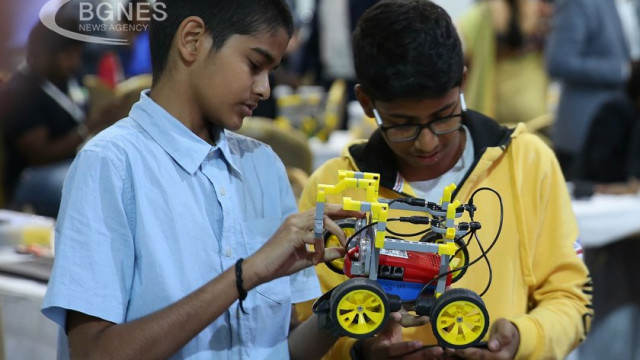The impact of the suspension of children's education during the Covid-19 pandemic may have delayed the chances of increasing global economic growth by up to 40 years, according to data from the Organization for Economic Co-operation and Development (OECD).
The gloomy forecast was presented by the OECD in the interim economic forecast for 2024, published in February: "Strengthening the foundations of growth".
The interim report examines the global economic outlook and inflation projections for 2024, as well as ongoing geopolitical risks, such as trade disruptions from the Red Sea conflict.
There has been an unprecedented decline in maths and reading test scores among 15-year-olds in the period 2018-2022, i.e. in the years spanning the pandemic, the report revealed, citing the OECD's 2023 global report on the results of the International Student Assessment (PISA).
According to OECD estimates, falling scores could have a negative impact on global productivity, knowledge diffusion and innovation for 30 to 40 years, as lower scores will affect secondary school grades and possibly learning opportunities in college and for work.
The report states that these results can mainly be explained by the fact that few schools and courses implemented online learning during the pandemic disruptions, as economically disadvantaged children did not have the opportunity to take advantage of online learning like other students due to lack of resources.
These disadvantages range from lack of access to the internet or computers, space to study and even support from teachers and peers, among others. As school lockdowns continue for years in some countries, many students have also noticed an impact on their mental health, which has also affected their academic lives.
According to British Conservative MP Duncan Smith, "Many of us knew what was going to happen. It was a disaster for the children to be excluded from school."
However, the test results also highlighted some key flaws in several education systems that existed long before the pandemic and clearly indicate the need for change.
These include a higher standard of teacher qualification as well as better teaching quality. The report states that more support is needed for disadvantaged schools and children in the form of better and more effective resources.
In addition, for older and returning students as well as current students, greater choice is needed in lifelong learning, skills-based courses and vocational training, which should ideally be tailored with current market requirements.
According to the OECD, by the end of next year, inflation in most G-20 countries should return close to or within the target value. For 2024, general inflation in the G20 countries is expected to be around 6.6%, and core inflation - on average around 2.5%.
Forecasts for 2025 are for overall inflation for the G-20 countries to be around 3.8% and core inflation to fall to 2.1%.
However, central banks and economic institutes are likely to continue to take a cautiously optimistic and data-driven approach, with the Bank of England deciding to keep interest rates steady at 5.25% at its February meeting. This is to be absolutely sure that inflationary factors are under control before taking key steps to loosen monetary policy.
The report stressed: "Monetary policy needs to remain cautious to ensure that underlying inflationary pressures are permanently contained. There is scope to begin cutting nominal interest rates, provided inflation continues to decline, as in the US and Eurozone interest rate cuts will start in the second and third quarters of 2024 respectively, but the policy stance should remain restrictive for some time to come."
The OECD estimates that in 2022 approximately 15% of the world's maritime trade volume will pass through the Red Sea. With Houthi attacks in the Red Sea still showing no signs of abating, shipping costs for a number of companies have risen rapidly.
This is mainly due to the fact that several companies such as Hapag Lloyd, Maersk and the Mediterranean Shipping Company (MSC) have announced that they will suspend Red Sea transits due to the increasing danger of attacks on merchant ships.
Other companies had to bypass the African continent via the Cape of Good Hope, increasing their journey time by 30% to 50%. This mainly affected trade routes and timetables from Asia to Europe.
This has led to concerns about shipping capacity worldwide. Several companies had already placed more orders for container ships since the pandemic, which could help fill the supply shortfall and possibly reduce costs.
Transport costs could have a strong impact on global inflation, with several European retailers such as Tesco, Primark, Next and Marks and Spencer warning that the situation in the Red Sea could lead to higher prices for some products, as well to the absence of others or to the scarcity of such.
The OECD estimates that if transport costs continue to rise, annual import price inflation could rise by around 5%. This, in turn, could lead to a rise in consumer price inflation of around 0.4% in about a year. /BGNES







